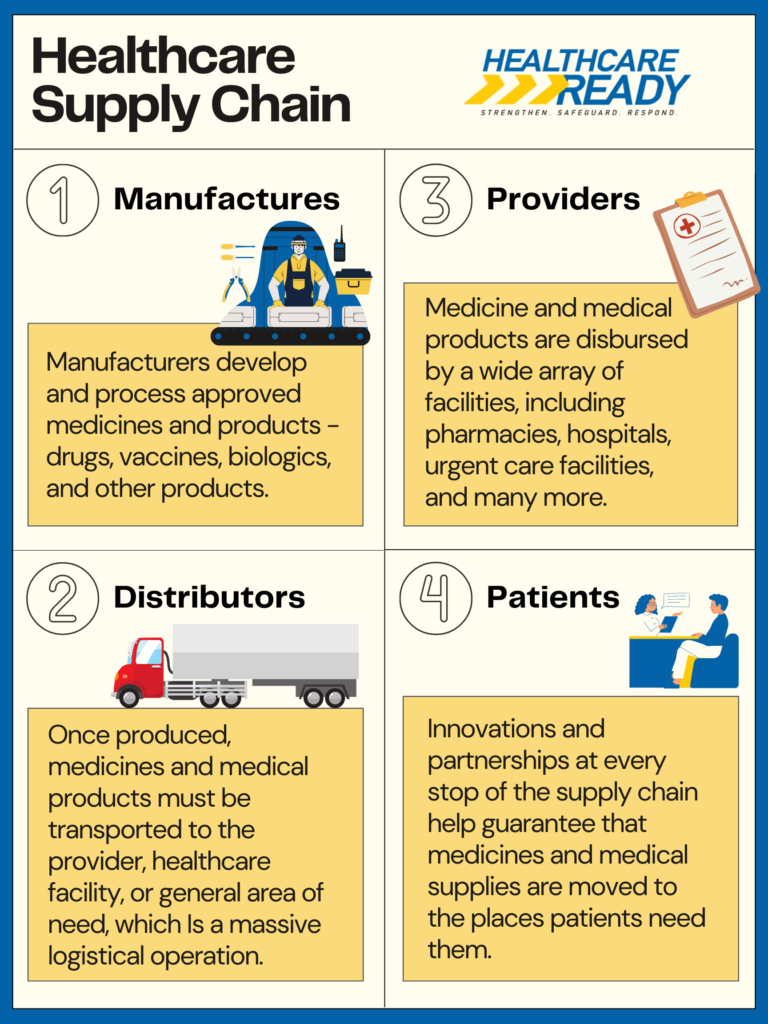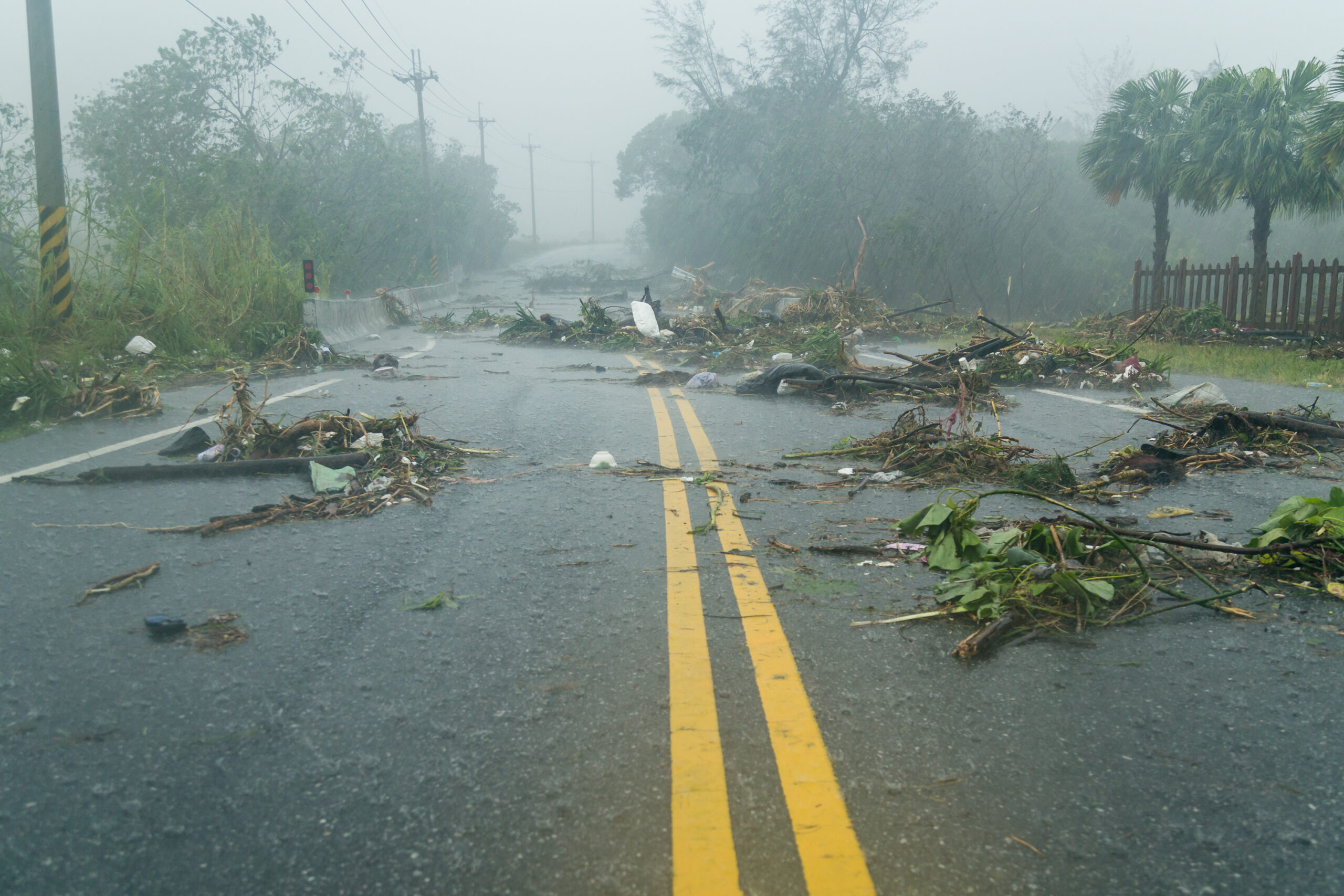Partnering with the Healthcare Supply Chain During Disasters
Perhaps the most important key to success in the healthcare supply chain? Relationships. It is important to first foster dynamic collaboration between the various stops to ensure the supply chain is as effective as possible. For that to occur, we must first establish high confidence and trust. We work hard to build partnerships with federal, state, and local stakeholders, as well as the private sector, so that when an emergency strikes, we can all work together to keep the supply chain running smoothly.
Non-government organizations, healthcare coalitions (HCCs), and other partners play a crucial role in sharing resource needs and coordinating and dispensing donated products during a disaster response. They work in unique and dynamic spaces to support the healthcare supply chain by routing urgently needed medicines and supplies to patients as well as sharing information across relief agencies and public sector responders.
HCCs play a key role in linking public sector response agencies, such as emergency management agencies and public health departments, to private healthcare facilities that serve as points of service. HCCs are key stakeholders and though not direct components of the supply chain, they may be able to act as a coordination point between multiple vendors/suppliers and healthcare facilities to address supply disruptions. They play an important role in developing and disseminating information between their stakeholders (including emergency management) and with distributors, monitoring impact, and coordinating response activities during emergencies.
Social services and community-based organizations are also key to ensure a holistic approach to preparedness and response. These organizations and leaders have an established, trusted relationship with their local communities and understand how to reach their constituents. Healthcare Ready works to provide training and technical assistance for these community-based organizations to ensure they are armed with the resources they need to be a key partner of the healthcare supply chain should disaster strike.
COVID-19 is a great example of partners at work. The pandemic disrupted global supply chains, healthcare operations, and everyday life as we know it. Even through the unique and unprecedented crisis, we saw pharmaceutical manufacturers to local pharmacies, and every aspect of healthcare in between, rise to the occasion including those non-traditional players who contributed to the resilience of the healthcare supply chain during the pandemic.
For example, we saw partnerships formed and innovative solutions designed to support the sectors and industries that support healthcare and the supply chain, like solutions for food security and the grocery sector, social services, mental health services. We saw companies and organizations that diverted production capabilities and resources to manufacture supplies for COVID-19 response, and we also saw companies re-focus their long-term resilience efforts as opposed to immediate COVID-19 response.







